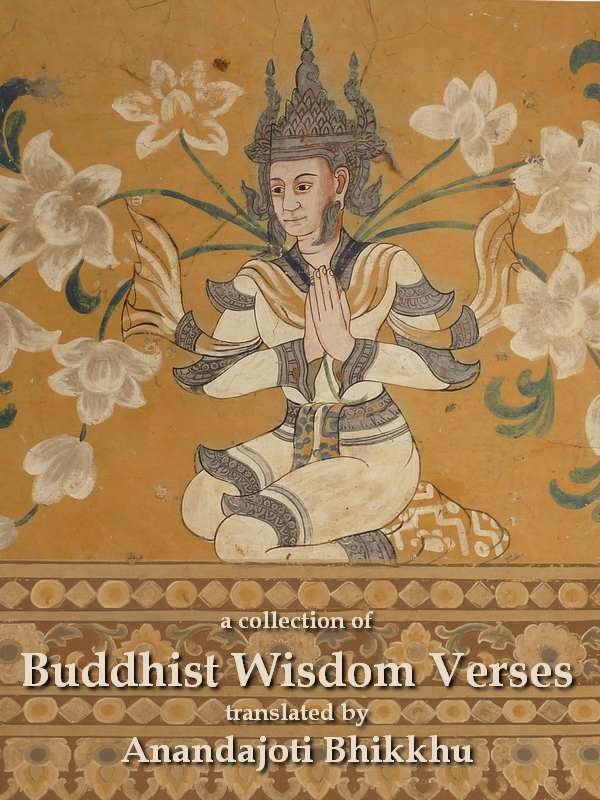I have just published a new book that I have been working on for the past year or so on my Ancient Buddhist Texts website, fulfilling a long-cherished project that I have had in mind for the past decade.
The book is a collection of verses based on a work published in Sri Lanka and known under its Sinhala title as the Buddha Nīti Saṅgrahaya (බුඩ්ද නීති සංග්රහය) by Ven. Rerukane Candavimala, the former Mahānāyaka of the Swejin Nikāya in Sri Lanka, which is my ordination sect.
Ven. Rerukane Candavimala, who passed away in 1999 just short of his 100th birthday, was one of the foremost scholars in Sri Lanka in the 20th century, and his works, which cover the whole range of Buddhist studies, including Vinaya, Discourses, Abhidhamma and Meditation, are all still standard works of reference in the country.
The book is one of the most useful compiliations on the moral life of the layman that can be found. It is drawn mainly from the great verses collections in the Pāḷi Nikāyas and almost all aspects of the lay life have been covered, so that it brings together in a fairly comprehensive way many teachings that would otherwise be lost in obscurity.
Throughout the book it is possible to find teachings on all matters of the ethical life, that will help guide anyone to make better life-choices whether it be at business and work, or in the home life and their various relationships.
This is a book that can be returned to time and again to remind oneself of the teachings, and in that sense each of the stories is a meditative reflection. In its present form it also acts as an easy source book for some of the many teachings there are for the lay community in the Canon, and can be utilised to find guidance when in doubt.
I have divided the text into 3 editions so that readers can find the most appropriate one for their reading. The first is in Pāḷi-only, which shows the complete framework for the establishment of the text, including all the metrical information that helped in choosing the readings. I have also read in the text and am making it available as mp3 files, so that students can hear what the text and the metres sound like.
The Text and Translation edition on the other hand leaves out all the metrical information, and presents the text with the Pāḷi and the translation line by line, and gives a translation of the alternative readings, whenever they differed from the adopted text. This is useful for students, who want to gain access to the original language, but for whom a translation is still a necessary help.
The English edition is for those who simply want to read and understand the teachings that are contained in the verses, or are seeking advice on the best way of living their everyday lives.
I have included the Pāḷi in this edition, but I have deliberately avoided annotation here so that the message can be better conveyed, and also because this section is being published as audio .mp3 files, where annotation is superfluous. This edition is also available in .epub and .mobi formats for your eReader.
I have complemented the various online editions by adding in hyperlinked indexes that help access the material, and that are contained in the most relevant edition. There are also separate introductions to the different versions, giving extra and relevant information.
Tomorrow I will post a short extract from the books as a taster
